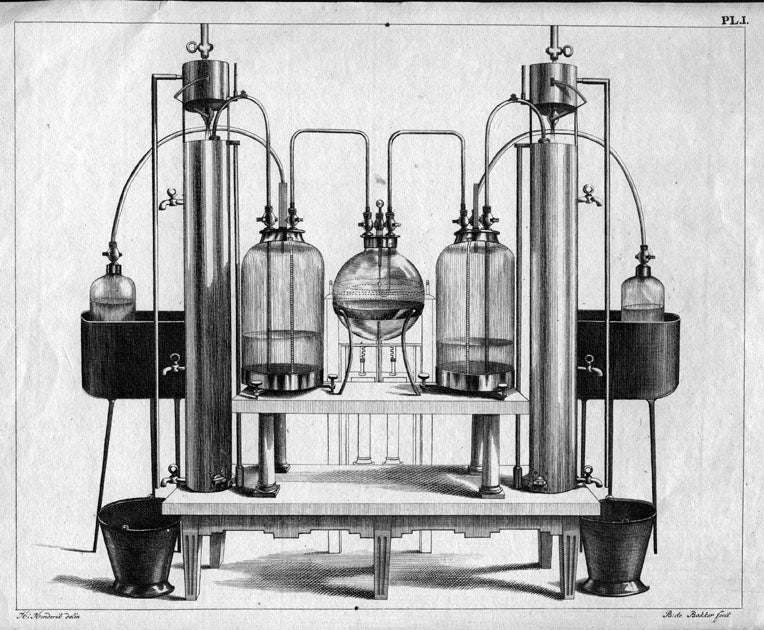
Your support helps us to tell the story
From reproductive rights to climate change to Big Tech, The Independent is on the ground when the story is developing. Whether it's investigating the financials of Elon Musk's pro-Trump PAC or producing our latest documentary, 'The A Word', which shines a light on the American women fighting for reproductive rights, we know how important it is to parse out the facts from the messaging.
At such a critical moment in US history, we need reporters on the ground. Your donation allows us to keep sending journalists to speak to both sides of the story.
The Independent is trusted by Americans across the entire political spectrum. And unlike many other quality news outlets, we choose not to lock Americans out of our reporting and analysis with paywalls. We believe quality journalism should be available to everyone, paid for by those who can afford it.
Your support makes all the difference.
What courses? Chemistry; analytical chemistry; applied chemistry; archaeological chemistry; biological chemistry; biomedical chemistry; chemical technology; chemistry of materials; colour chemistry; computer-aided chemistry; computing chemistry; environmental chemistry ... you get the picture.
What do you come out with? A BSc, MChem or MSci, depending on length and level of study. BEngs and MEngs are offered in very few cases.
Why do it? "The study of chemistry is about understanding the intricate molecular processes that underpin everything on our fascinating planet (and beyond), then learning how to manipulate them for our future benefit, from designer medicines, to cleaner fuels, to nanotechnology. If you want to understand how things work, how they really work, and creating things in a laboratory sounds exciting, then a degree in chemistry is probably for you." - Dr Emily Flashman, University of Oxford's department of chemistry
Click here to read about what it's like to study Chemistry
What's it about? The science of matter, or ‘stuff’. It’s about the properties of materials and how they react with one another and change. Given that there is a fair bit of different stuff floating around on our planet, it’s no surprise that there are endless speciality courses available, from biomedical and pharmaceutical chemistry, to food and herbal medicine chemistry. It’s not all Bunsen burners and test tubes – there’s also the increasing use of computers and modeling (not the Kate Moss kind) as scientists pioneer new experimental methods. At Durham the first year is an introduction, bringing in elements of biology and physics as well, and establishing the fundamentals. There is also about 10 hours a week of lab work. Nottingham Trent is slightly different with the core subjects of inorganic, organic, physical and analytical chemistry being taught in first and second year before you specialise in the likes of nanomaterials and green chemistry. At Bristol, it starts with the core modules of organic, inorganic and physical chemistry, before moving on to theoretical, analytical and environmental chemistry. At Cambridge, you study natural science, and are able to choose modules so you specialise in chemistry, while being able to explore wider options.
Study options: For a BSc you’ll be studying for three years. You’ll need to complete a fourth year to be awarded with an MChem or MSci, usually involving a research project or some kind of industrial experience.
What will I need to do it? Surprisingly, you’ll need to have studied chemistry at A-level or equivalent, and almost all universities ask for maths, and some for another science. Cambridge requires A*AA, with a minimum of two sciences, although most have three. That said, entry grades do vary between institutions.
What are my job prospects? Depending on your degree, chemistry sets you up for a wide range of careers in the chemical industry, pharmaceuticals, biotechnology, environmental management or nanotechnology. Many graduates go into research or further study. Around a third go straight into graduate-level employment, according to The Times’ Good University 2012, with an average starting salary of just under £20,000.
Where’s best to do it? Cambridge topped this year’s Good University Guide, followed, predictably by Oxford and Durham. Students at Loughborough, Hull and Heriot-Watt said they were most satisfied with their course.
Related degrees: Chemical engineering; biological sciences; physics.
Join our commenting forum
Join thought-provoking conversations, follow other Independent readers and see their replies
Comments